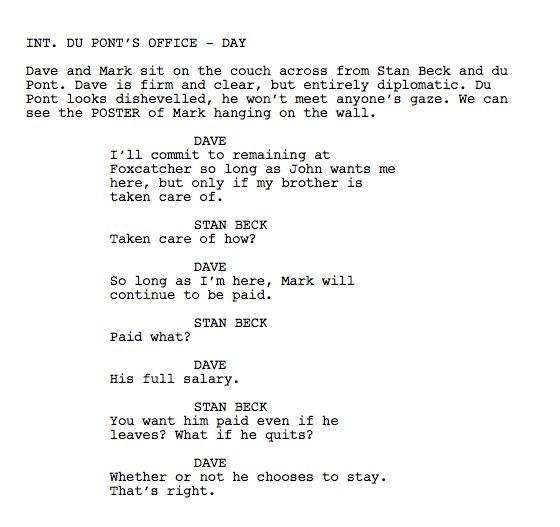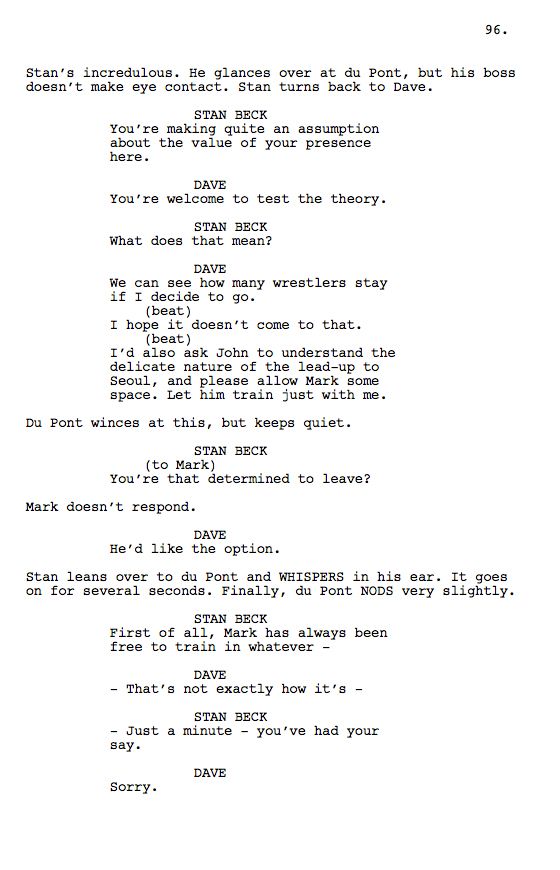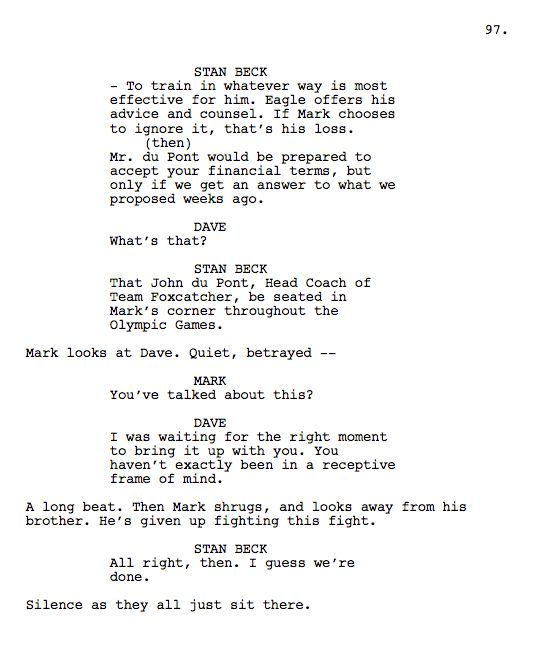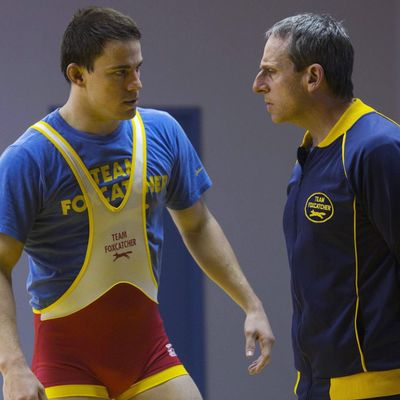
Vulture is speaking to the screenwriters behind 2014ÔÇÖs most acclaimed movies┬áabout the scenes they found most difficult to crack. Which pivotal sequences underwent the biggest transformations on their way from script to screen? Today we tackle Foxcatcher, where the wealthy, dangerous John du Pont (Steve Carell) tangles with wrestler Mark Schultz (Channing Tatum) and his brother Dave (Mark Ruffalo) as he tries to assemble a world-class wrestling team at his estate. Since director Bennett Miller worked at separate times on the screenplay with writers E. Max Frye and Dan Futterman, we spoke to both men about the toughest scene they wrote, and each scene is excerpted below.
E. Max Frye: When I came onto the project, Bennett had all this material: a hundred hours of interviews with wrestlers, photographs, public-domain documents, police reports, all kinds of stuff. The question was really, where do we start in this story, since we kind of knew where we wanted to end it? Bennett told me about a scene he wanted to do where Mark is talking in front of a bunch of schoolkids, and we talked about that for a long time. In his head, he knew what he wanted and what he didnÔÇÖt want, so coming into the movie as I was, that was the first thing I had to tackle.
It became the hardest thing I had to do because I had to really discover who Mark was as a person first, and I had to hear his voice. That took me  oh my God, so many drafts, and so much time to pull that together in a way I needed to in order to move on and write the rest of the script. I had to find the character before I could do anything else  that, to me, was essential, and proved to be as hard as anything in my contribution to the screenplay. Once I have the first scene, I know what the character is going to to do next.
Dan Futterman: IÔÇÖll say one thing about the scene that Max is talking about: What I love about what Max did with it is that it so beautifully sets up MarkÔÇÖs innocent guilelessness and his lack of ability to read his audience, which continues through the movie. ItÔÇÖs not only finding his voice, itÔÇÖs locating how difficult a time Mark has navigating the world. You get that immediately.
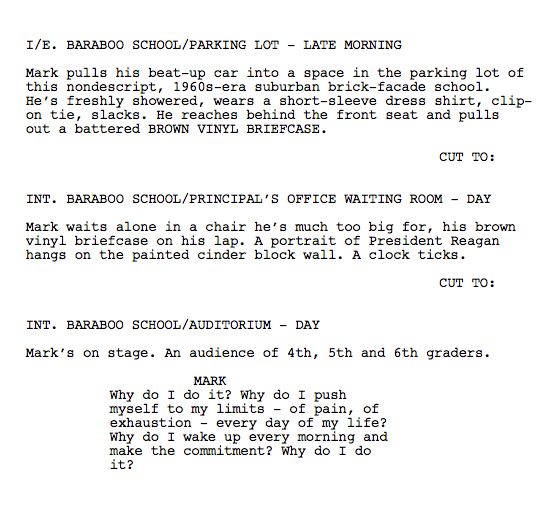
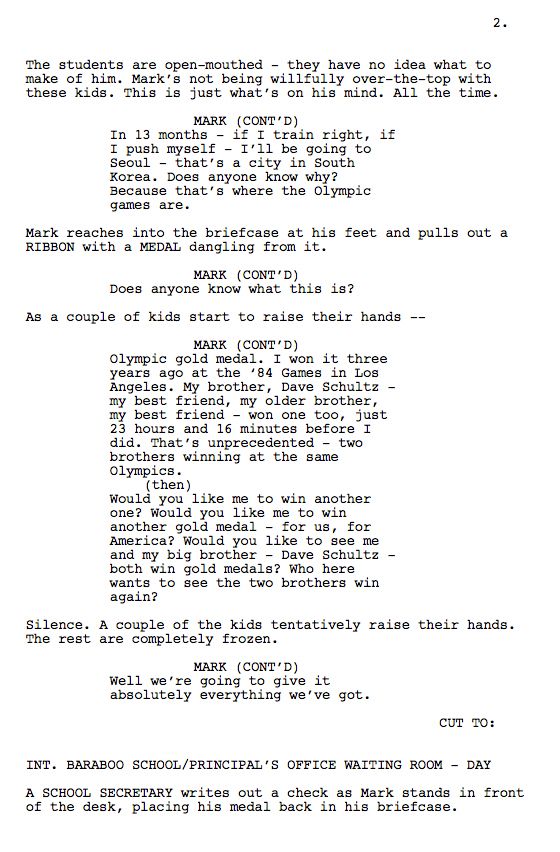
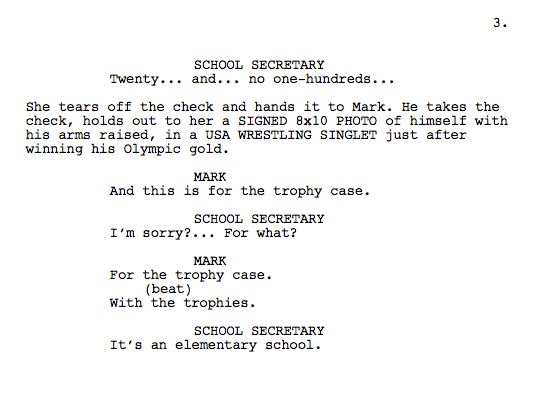
There were a lot of iterations of the scene where Dave tells du Pont that Mark will need to be paid even after he leaves Foxcatcher, and I think Max had written an iteration of it as well. It was important to set up the ending, which kind of tumbles out from that scene. Importantly, Dave is being pulled in two directions: HeÔÇÖs trying really hard to deal diplomatically with du Pont while also protecting his brother. The real problem in the scene is that du Pont and Mark are the ones who have a problem with each other, but they donÔÇÖt speak ÔÇö they have proxies doing it for them, Dave and Stan Beck.
You hear about the issues through them while du Pont and Mark sit in silence, and Dave is vocally challenging du Pont for the first time. ItÔÇÖs the moment du Pont realizes that he has not successfully bought Dave. At the same time, Mark is trying to get Dave to leave Foxcatcher with him, and Dave says, ÔÇ£IÔÇÖm not leaving. IÔÇÖm staying here, but I will take care of you.ÔÇØ Dave gets du Pont to take care of him, but what he has to give du Pont is the right to be in MarkÔÇÖs corner ÔÇö which dooms MarkÔÇÖs chances in the Olympics, and all of their fates are sealed.
It was a really pivotal scene, and we didnÔÇÖt want to club anybody over the head with exactly what was going on, but there are very subtle threats that are happening in that scene that have to be both apparent and quiet enough not to create too much of a stir.
Frye: I think Dan and I are very well-versed not only in BennettÔÇÖs process but in how movies are made in Hollywood, and there can be multiple writers on a project. We understand that scripts are a blueprint and a jumping-off place. You can watch the film and go back and look at your original script and say, ÔÇ£Oh, thereÔÇÖs the essence of that scene,ÔÇØ though it may not be in the same location, or even with the same characters. When BennettÔÇÖs process works well, itÔÇÖs fantastic, and I donÔÇÖt have a problem with it. Movies are collaborative ÔÇö thatÔÇÖs part of the deal ÔÇö and I try not to be possessive or guard my work in any way, even to myself. In a case like this, where youÔÇÖve got the talent that Bennett assembled and everybody brings their A-game, itÔÇÖs fantastic to see the results of that.
